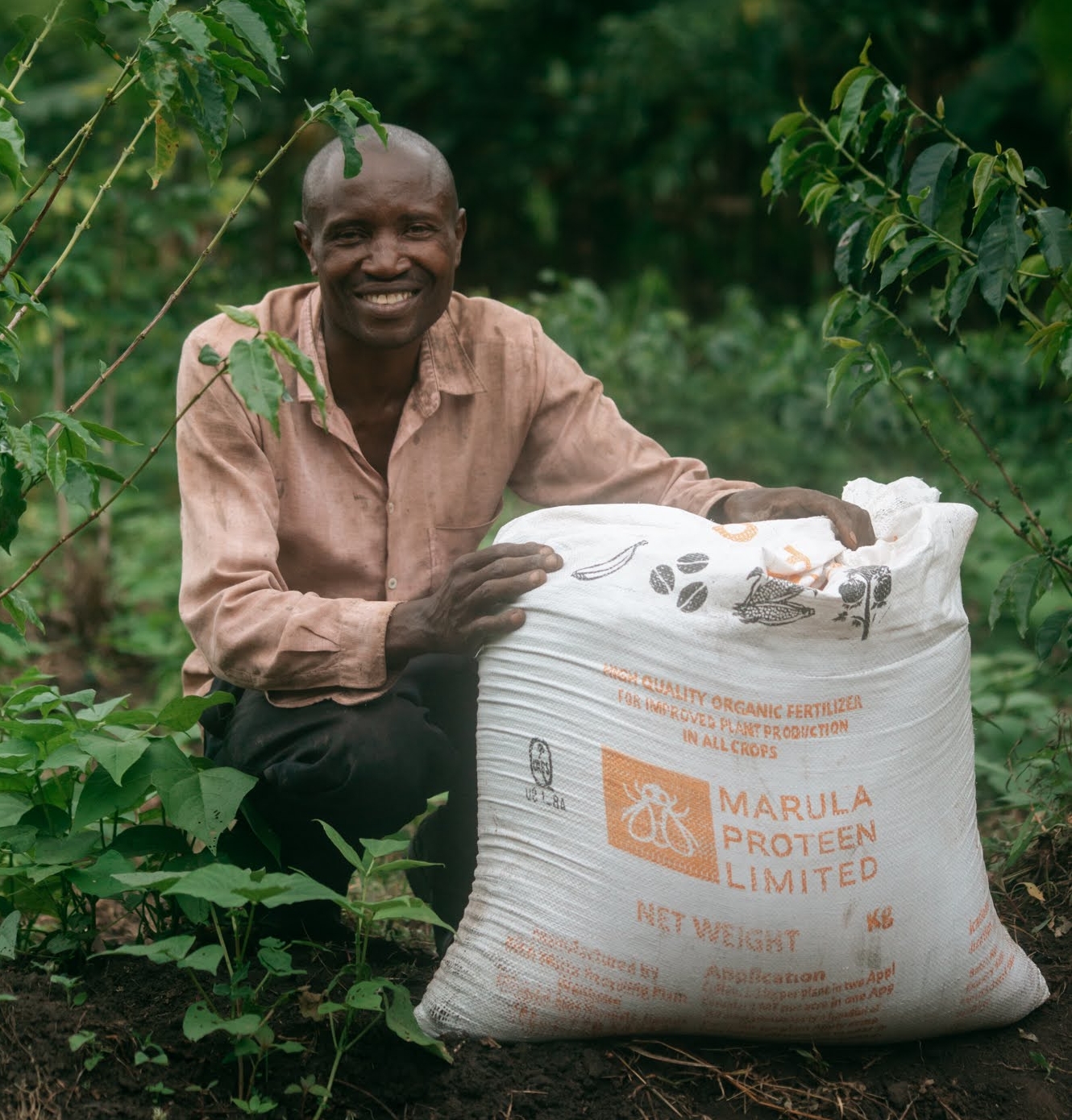Fairfood, Proteen and Ugacof, with support from Emata, awarded EIT Food grant to bring regenerative and traceable coffee from Uganda to Europe
With Uganda now the biggest coffee exporter in Africa, it is about time this success translates into a thriving coffee sector for farmers themselves. That is the vision of a new €2.5 million programme led by Fairfood, Proteen, and Ugacof, with the support of digital finance partner Emata and co-funded by EIT Food, Europe’s largest food innovation community, supported by the European Institute of Innovation and Technology (EIT), a body of the European Union.
Together, the partners will scale tested models to lower production costs, improve soil health, and build resilience in coffee farming. By expanding across six coffee washing stations that already engage more than 15,000 farmers, the consortium aims to make coffee production not only more sustainable, but also a stronger source of income for those who grow it.
Farmers will see immediate benefits: lower production costs through access to organic fertiliser made from coffee waste, healthier soils, and new income streams from carbon credits. With added access to digital microloans, farmers can invest in these changes and strengthen their resilience against external shocks.
This initiative is designed to turn proven models into lasting impact: growing viable farming businesses, reducing environmental pressure, and giving European buyers and consumers confidence that every bag of coffee comes with verifiable proof of positive change.
How the programme works
Each partner brings their unique expertise. Ugacof anchors the programme in Uganda through its extensive farmer network, coffee sourcing, and agroforestry demonstration plots. Proteen transforms coffee waste into organic fertiliser and carbon credits, adding a circularity element while opening new income streams for farmers. As a subcontractor, Emata brings the missing piece: digital microloans to participating farmers, helping them invest in the interventions identified and increase productivity. Finally, Fairfood coordinates the project, ensuring rigorous data collection, traceable claims, and transparent reporting.
Together, the consortium aims to set a new standard for regenerative, traceable coffee trade: grounded in evidence and designed so that farmers, businesses, and consumers benefit.
“This project shows how innovation can truly work at scale,” says Sander de Jong, Managing Director at Fairfood. “Together with our partners, we can now turn tested pilots into a holistic model for sustainable coffee, one that makes all supply chain partners proud and delivers transparency and ethics that consumers and regulators are calling for.

This project allows us to take what has worked at pilot level and bring it to thousands of farmers across Uganda. It’s about making regenerative coffee a reality at scale, while strengthening livelihoods and positioning Uganda as a leader in sustainable coffee for the European market.
Why it’s unique
This initiative scales interventions that have already strengthened farmer resilience and sustainability, while integrating insights from Fairfood’s living income research in Uganda, Honduras, and Sierra Leone. Findings show that increasing farmers’ incomes and resilience against external shocks cannot rely on prices alone; lowering production costs is often a crucial step to make farming viable and profitable.
Between 2025 and 2026, the programme is expected to reach 6,000 farmers across six coffee washing stations. Every intervention – from agroforestry demo plots to fertiliser use – will be digitally recorded and monitored through an impact dashboard, allowing real-time visibility of how investments translate into better livelihoods, stronger soils, and reduced emissions.
The programme “Bringing Responsible, Regenerative and Traceable Coffee to the EU Market” will scale regenerative agriculture, enable financial empowerment, and strengthen farmer resilience. Combining tested pilots, accessible finance, and clear evidence, the programme brings together the full coffee ecosystem in a genuine “win-win-win”: farmers benefit directly, businesses can source traceable, sustainable coffee, and European consumers gain confidence that their choices support measurable impact.
About EIT Food
EIT Food is the world’s largest and most dynamic food innovation community. It is one of the eight innovation communities established by the European Institute for Innovation & Technology (EIT), an independent EU body set up in 2008 to drive innovation and entrepreneurship across Europe. The network accelerates innovation to build a future-fit food system that produces healthy and sustainable food for all.



